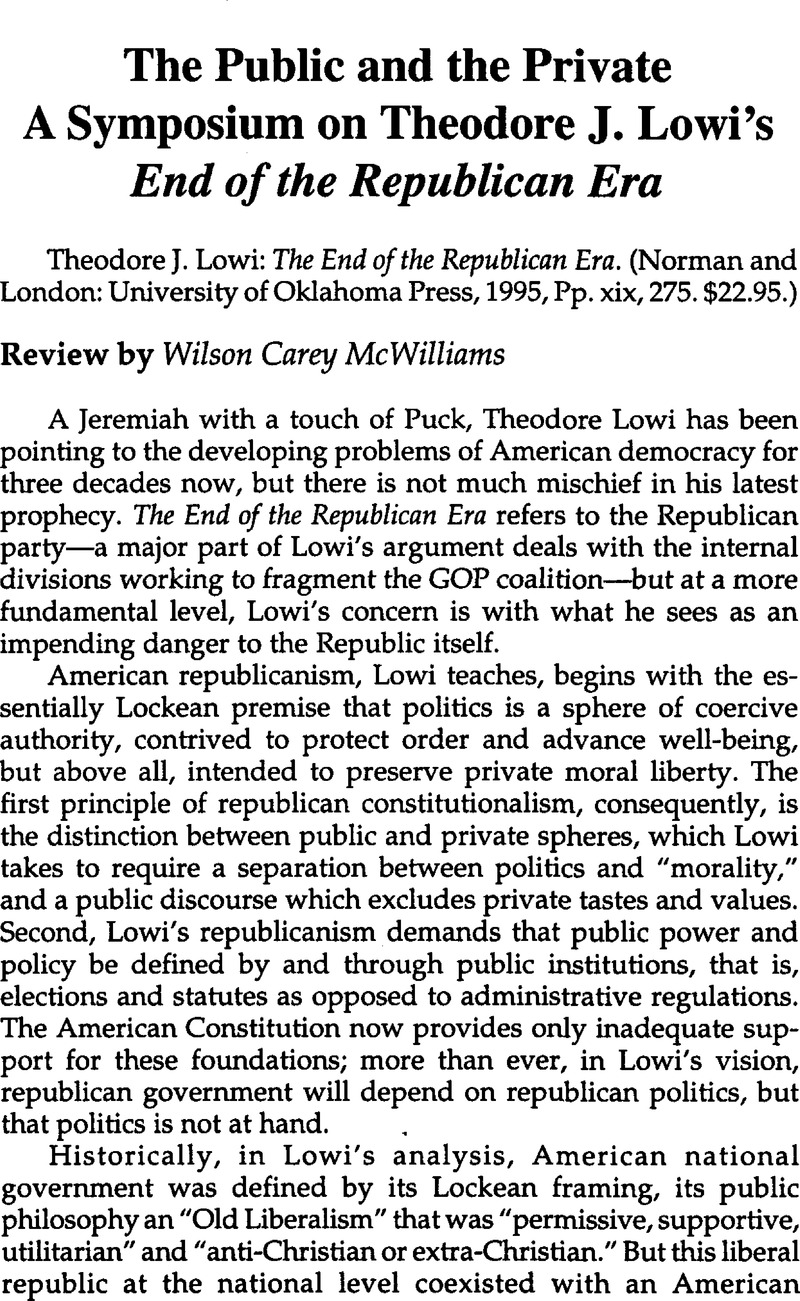Article contents
The Public and the Private A Symposium on Theodore J. Lowi's End of the Republican Era
Published online by Cambridge University Press: 05 August 2009
Abstract

- Type
- Review Article
- Information
- Copyright
- Copyright © University of Notre Dame 1996
References
1 Downs, Anthony, An Economic Theory of Democracy (New York: Harper & Rowe, 1957)Google Scholar.
2 Kramnick, Isaac and Moore, R. Laurence, The Godless Constitution: The Case Against Religious Correctness (New York: W. W. Norton, 1996)Google Scholar.
3 Carter, Stephen, The Culture of Disbelief—How American Law and Politics Trivialize Religious Devotion (New York: Basic Books, 1993), pp. 22 and 30Google Scholar. I deal with this in my Preface.
4 Mansfield, Harvey C. Jr, The Spirit of Liberalism (Cambridge, MA: Harvard University Press, 1978)CrossRefGoogle Scholar, Chapter 3. This chapter, entitled “Disguised Liberalism,” is devoted entirely to a review of The End of Liberalism. It was first published in Public Policy, Fall 1970, pp. 605–628.
5 Quote from Stone, John and Mennell, Stephen S., eds., Alexis de Tocqueville on Democracy, Revolution and Society (Chicago: University of Chicago Press, 1980), p. 316Google Scholar. It was the study of penitentiaries and punishment that actually brought de Tocqueville to America.
- 1
- Cited by




